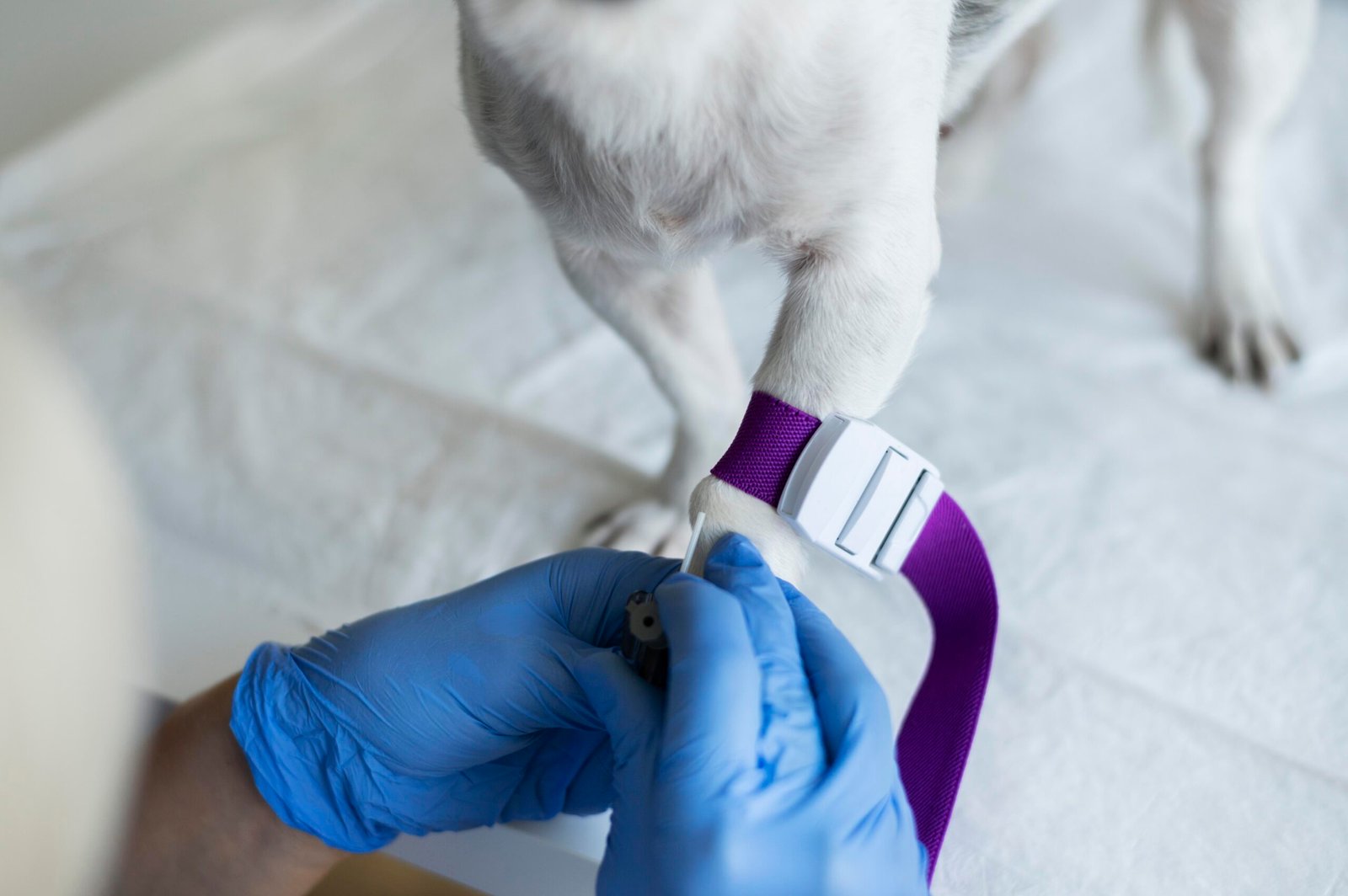The heartworm disease, also called dirofilariasis is a fatal disease caused by Dirofilaria immitis, a foot-long parasite.

HEARTWORM DISEASE
Those parasites live in the hearts, lungs and blood vessels in dogs. The heartworms can cause heart failure, damage to the arteries and lung diseases. Dogs are known to be natural hosts for heartworms. If heartworms get to live inside the dog, can easily mate and produce offspring. Their number can increase up to 300 worms, if the dog is untreated. That is why prevention is the best option.
How hearthworm disease is transmitted
The heartworm disease can only be spread by infected mosquito. This disease can be transmitted if adult female heartworm is already living in a dog. When is producing baby worms is known as microfilaria. The microfilaria circulate in the blood stream. Then is developing and maturing into larvae over a period of 10-14 days, and when the infected dog is bitten by the mosquito, the mosquito grabs these baby worms. If the infected mosquito bites another dog, the larvae set down on the surface of the dog’s fur or skin, entering the new host with the help of the infected mosquito.
When the larvae is inside the new host, the larvae matures into adult heartworms. It takes approximately 6 months the larvae to become an adult heartworm. Those new developed heartworms can live for 5 to 7 years in your fury friends. This can cause internal damage of the heart, lungs and blood vessels. During the mosquito season the number of worms can increase in the infected dog due to the long life of the heartworms.
Symptoms of heartworm disease
It may take several years before dogs show some signs of infection. (in the early stages the dogs may show or may not show symptoms). Usually by the time the dog shows any clinical sign, the heartworm disease is well advanced.
Symptoms of heartworm disease include: Decreased appetite, weight loss, lethargy, soft dry and persistent cough, blood in urine, breathing distress, weakness or anemia.
When the disease progresses, the dog’s belly might look swollen because of the excess fluid in his or her abdomen. If the number of heartworms is large, they can block the blood flow of the heart’s vessels. This could lead to a cardiovascular collapse or heart failure. This life treating illness is known as ‘’ Caval Syndrome ’’.

Tests for heartworm disease
As mentioned above the heartworm disease is a very serious and life threating disease. If it is detected and confirmed in the early stages, the chances for recovering are better. The presence of a heartworm can be tested only by a small blood sample of your dog.
Other ways to diagnose the disease is serological test for antigens to heartworms, chest x-rays (in order to see if there is a presence of heart or lung damage), echocardiography (in order to see if there is heart enlargement or presence of worms in the heart and associated blood vessels)
Treatment for heartworm disease
If your dog is diagnosed with severe heartworm disease your vet may give you antibiotics, pain relievers, drugs for improving the heart function, diuretics for removing the excess fluid in their lungs, and special diets. The health of a lot of dogs who have the heartworm disease may improve, by showing weight gain, improved appetite, and renewed vitality, but might need a lifetime treatment for heart failure treated by using diuretics or other heart medication such as beta-blockers, cardiac glycosides and ACE-inhibitors, followed by special low-salt diets.
MOST ASKED QUESTIONS ABOUT HEARTWORM DISEASE
Is heartworm disease common in dogs?
The disease is widespread in many areas, particularly where mosquitoes are prevalent. It’s more common in regions with warmer climates.
How can I prevent heartworm infection in my dog?
Preventing heartworm infection involves using heartworm prevention medications, which are available in various forms, including monthly tablets, topical solutions, and injections.
What are the treatment options?
Treatment for this disease can be challenging and risky. It typically involves a series of injections to kill adult heartworms. The treatment process may also include medications to manage side effects and complications.
Heartworm Prevention Medications
Heartworm prevention is the most effective way to protect your dog. These medications are available by prescription from veterinarians and should be administered regularly, especially in areas with a high risk of heartworm transmission.

TREATMENT FOR INFECTED DOGS
If your dog is diagnosed with the disease, treatment can be complex and costly. It’s crucial to follow your veterinarian’s guidance for a successful outcome.
Lifestyle and Environmental Considerations
Reducing your dog’s exposure to mosquitoes, such as using mosquito nets or keeping them indoors during peak mosquito activity, can help lower the risk of infection.
Safeguarding Your Dog Against Heartworms
Ensuring your four-legged buddy stays healthy is crucial. Heartworm disease poses a severe risk, yet it’s avoidable with proper precautions. Grasping the dangers, indications, and treatment alternatives empowers you to safeguard your fur baby from this potentially life-threatening ailment. Remember, prevention trumps cure, so consulting your vet is key to determining the optimal preventive measures tailored to your pup’s needs. By being proactive, you can guarantee your canine companion remains secure and thriving.
As a responsible owner, you hold the power to shield your pooch from heartworms. The simple yet vital step is scheduling regular consultations with your veterinarian and arranging biannual heartworm tests for adult dogs. This vigilance enables early detection and intervention, ensuring your furry friend remains safeguarded against this severe and potentially fatal disease.
You as an owner can prevent your dog from getting heartworms.
All you need is to consult with your veterinarian
and test your adult dog for this serious and potentially fatal disease every six months.
Read more on this topic at Wiki Pages!



